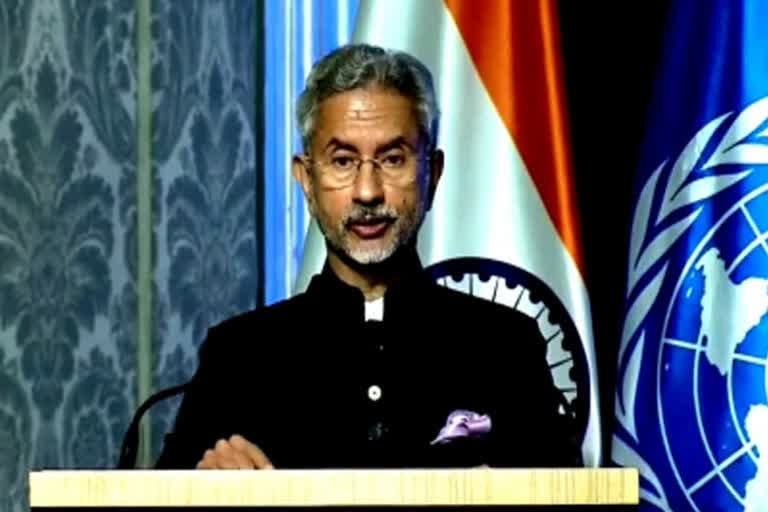United Nations: External Affairs Minister S Jaishankar Thursday told the UN Security Council that the "contemporary epicentre of terrorism" remains very much active as he lamented that evidence-backed proposals to blacklist terrorists are put on hold without adequate reason, in a veiled attack on China and its close ally Pakistan.
Jaishankar, who presided over the 'UNSC Briefing: Global Counterterrorism Approach: Challenges and Way Forward', described terrorism as an existential threat to international peace and security and said it knows no borders, nationality, or race. "The threat of terrorism has actually become even more serious. We have seen the expansion of Al-Qaida, Da'esh, Boko Haram and Al Shabab and their affiliates," he said in his address to the 15-nation Council.
Jaishankar, speaking in his national capacity, said that "at the other end of the spectrum are lone wolf' attacks inspired by online radicalisation and biases. But somewhere in all of this, we cannot forget that old habits and established networks are still alive, especially in South Asia. The contemporary epicentre of terrorism remains very much active, whatever gloss may be applied to minimise unpleasant realities." He was apparently referring to Pakistan, which is accused by its neighbours of harbouring terrorists and providing safe havens to several terrorist groups like al-Qaida, Lashkar-e-Taiba and Taliban.
Highlighting specific challenges with which the counter-terrorism architecture is currently grappling, Jaishankar stressed the need of addressing double standards in countering terrorism, leading to concerns of politicisation. "Uniform criteria are not applied to sanctioning and prosecuting terrorists. It would seem sometimes that the ownership of terrorism is more important than its actual perpetration or its consequences," he said.
"The working methods of relevant mechanisms is also a subject of legitimate concern and debate. At one level, we have seen protections that come close to justification. Then, there are evidence-backed proposals that are put on hold without assigning adequate reason. Conversely, there has even been recourse to anonymity so as to avoid taking ownership of untenable cases," he added. His remarks were a strong reference to repeated holds and blocks on proposals by India to blacklist terrorists based on Pakistani soil, in the UN Security Council's sanctions committee by veto-wielding permanent member China. "We cannot let another '9/11 of New York' or '26/11 of Mumbai' happen again," Jaishankar added. (PTI)



